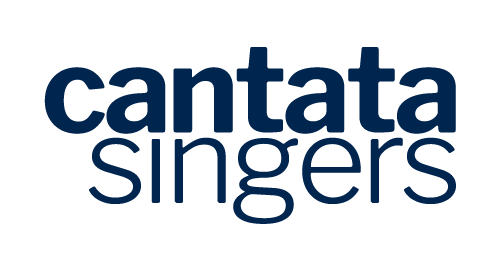Classroom Cantatas
About Classroom Cantatas
Cantata Singers has valued underrepresented music since its inception—be it performing works by lesser-known composers, commissioning new music, or bringing vitally-needed music education to Boston’s school children through the Classroom Cantatas program.
Classroom Cantatas is unique in its commitment to creation over imitation. Instead of teaching children to reproduce the music and styles of another time and tradition, Classroom Cantatas gives students the tools to create and express themselves using their own musical voice.
Residencies, which extend from November through April, begin with classroom teachers suggesting composition themes that are meaningful to the students and their communities; past topics have included Bullying, Mythology, Identity, and Diversity. During this initial phase, teaching artists give students lessons in music fundamentals, and then in small groups, often inclusive of special education and English language learners, children are guided as they use their newfound vocabulary to create tuneful and memorable songs.
This second chapter is an intimate and collaborative process that inspires engagement in the classroom and beyond, as students are challenged to look at the world with nuance, creativity, and confidence by analyzing texts and developing meaning through the language of music.
In the final phase of the residency, the students regroup as a unit to rehearse and perform their songs, which as a whole form their “Classroom Cantata.” The program culminates with a performance for their school communities.
Employment
Classroom Cantatas
Teaching Artist Job Description
Seeking Teaching Artists for a songwriting residency in Boston Public elementary schools. Lead Teaching Artists and Small Group Leaders needed to facilitate songwriting for 18 weeks or 5 weeks, respectively (between November 2024 and April 2025). This program highly values the voices and experience of the children we inspire in schools. Classroom Cantatas seeks talented, reliable, and engaging Teaching Artists in Roxbury, Dorchester, and Chelsea for weekly in-person classes.
This role encompasses a wide range of skills including, but not limited to:
High level of performance on an instrument or voice
Fluency with composition and improvisation; ability to create a melody and accompaniment
Ability to write poetry/lyrics
Experience using music notation software
Teaching experience; group instruction with elementary aged students is a plus
Other desired qualities include:
Strong communication skills (b/w classroom teachers, school admin, Community Programs Manager, and Teaching Artists)
Ability to meet deadlines
Enthusiasm and good rapport with children, especially ages 5–10
Other languages: Spanish; Vietnamese; Haitian Creole
Comfort with technology: possible recording and video software
Requirements:
Lead Teaching Artists: regular weekly availability during school day from late November to mid-April
Small Group Leaders: regular weekly availability during school day in January and February
CORI check (Boston Public Schools requirement)
To apply:
Please send resume and cover letter to Lydia Consilvio, Community Programs Manager: lconsilvio@cantatasingers.org
Pay rate is $80 per class
About the Program:
Classroom Cantatas is unique in its commitment to creation over imitation. Instead of teaching children to reproduce the music and styles of another time and tradition, Classroom Cantatas gives students the tools to create and express themselves using their own musical voice. Residencies extend from November through April in three phases:
PHASE ONE (Nov — Dec): Classroom teachers and Lead Teaching Artists suggest composition themes that are meaningful to the students and their communities; past topics have included Bullying, Mythology, Identity, Kindness, Friendship, and Diversity. Lead Teaching Artists give lessons in music fundamentals.
PHASE TWO (Jan — Feb): Lead Teaching Artists and Small Group Leaders guide children to use their newfound musical vocabulary to create tuneful and memorable songs; these students often include special education and English language learners. This phase is an intimate and collaborative process that inspires engagement in the classroom and beyond; students are challenged to look at the world with nuance, creativity, and confidence by analyzing texts and developing meaning through the language of music. During this time, Lead Teaching Artists and Small Group Leaders develop clear musical scores of the songs using music notation software (including melody with lyrics and harmony written as chords or piano accompaniment).
PHASE THREE (Feb — April): Students regroup as a unit to rehearse their songs all together with Lead Teaching Artists. The songs written from each small group become movements to form the whole “Classroom Cantata.” Students perform their pieces for their families and school communities.



